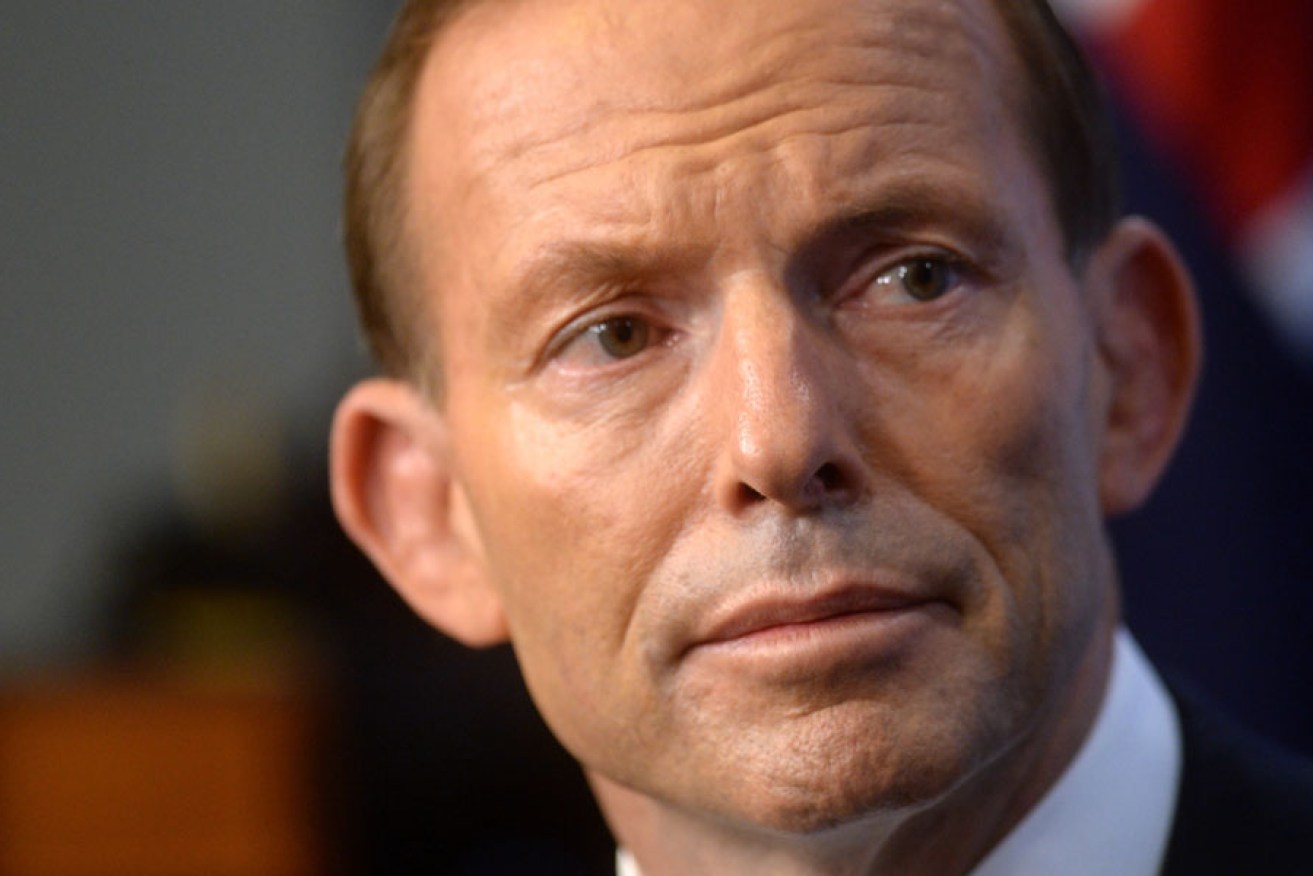Tony Abbott told Tuesday’s Coalition parties meeting that in the 1980s “we thought to ourselves, do we really think this economic rationalism stuff is going to work? But, mirabile dictu, it did”.
He went on (according to the official briefing) to talk about the Howard government’s enormous success in adopting the dry economic policies that had been coming into vogue in the 1980s.
Abbott, as much as anything, was describing his own journey to a somewhat “drier” view of economics. When he worked for the dry as dust John Hewson, he used to shock his boss with some of his views.
Before the election, the purer “dry” Liberals – Society of Modest Members types – worried whether there would be rising damp in an Abbott government.
So far, he’s mostly passed their test, especially with his hard line on industry assistance, denying aid to SPC Ardmona and the car industry (he referred at the party meeting to the difficult situation the government had had of “certain iconic businesses coming to us as an ATM of last resort”).
That icon Qantas is already inserting its card. It will receive no capital injection but is expected to get a debt guarantee (this was attacked in the party room by Queensland Liberal Teresa Gambaro as unfair to Virgin – “Qantas is an 800 pound gorilla and if we do this we will turn it into a Godzilla,” she said.) In line with the “dry” approach, the government is also preparing legislation to lift the 49% limit on foreign investment in Qantas, although that seems unlikely to pass even the new Senate.
But the measure of “dryness” goes beyond refusing to put public money into businesses with their hands out. It’s also about how deeply and extensively a government is willing to cut – to hoe into what Treasurer Joe Hockey dubs the culture of “entitlement”.
Here, as the budget approaches, Abbott is finding himself buffeted by cross pressures.
Hockey is setting the pace, as he casts himself as the chief reform voice in the government, building a profile for his own eventual leadership ambitions. He will bring to the table the 900-page report of the Commission of Audit, packed with slash-and-burn ideas. He has even unleashed a debate about raising the pension age further.
But Abbott has his promises from the election, in particular what he said he would not do – notably, that he would not make overall cuts to education and health. And he has the constraint of what the voters will bear. Even though it is the first year of the term, which should encourage bravery, going too far can be counterproductive. It doesn’t want to be a “do little” administration but over-reach can end up with not much achieved (remember Rudd).
With the latest Newspoll showing the Coalition trailing Labor 46-54% two-party preferred (compared with 49-51% earlier in the month), Abbott told his troops this year will be “the most difficult time in the parliamentary cycle and it will be a test of character for all of us”.
Inevitably, speculation will be rife in the pre-budget months, much of it sparked by the government, but at present the government is at risk of throwing out too many confusing messages.
What’s not yet clear is whether there is a significant gap between Hockey and Abbott in what they believe can and should be done in the near term. Hockey’s emphasis is always on the ambition; Abbott tends to point to the limits. Hockey’s rhetoric is hard; Abbott’s is softer. Maybe they are playing bad cop-good cop, or perhaps they really are bad cop-good cop.
Asked in question time whether he thought there was over-servicing in general practice, Abbott did not take the opportunity to drive home the Medicare reform message run out by Health Minister Peter Dutton last week. He said: “I have nothing but admiration and respect for the GPs of Australia, and we will do what we can to make their job easier, not harder.”
In his Monday speech to the Australia-Canada economic leadership forum, Abbott sought to reconcile the constraints with the ambition.
“We will keep our pre-election commitments to maintain health spending and school spending but must reduce the rate of spending growth in the longer term if debt is to be paid off and good schools and hospitals are to be sustainable.”
One course that’s been floated to get around the “broken promise” barrier is to load big cuts into the last year of the forward estimates, beyond the 2016 election. That way, the government could argue no promise was breached – the public would have their say at the election.
But that’s tricky, in more ways than the obvious, and Abbott is thought not to be attracted to it. What if the government was travelling badly by the time the cuts came around? They would be great fodder for the opposition.
The government has already said that it will take the results of various reviews – including of industrial relations – to the next election. If it was not careful, it could find it had a very scary platform of negative pre-election messages.
Abbott told the party room that the public, while knowing it had to be a tough budget, were anxious about what it might bring. “It is our job to reassure them and to demonstrate our plan for the future.”
For that to happen, the government has to get its own story written in clear, easily understandable terms, which involves hard judgments about how far the initial chapters should go.
Michelle Grattan is Professorial Fellow at the University of Canberra.
This article was first published at The Conversation.





